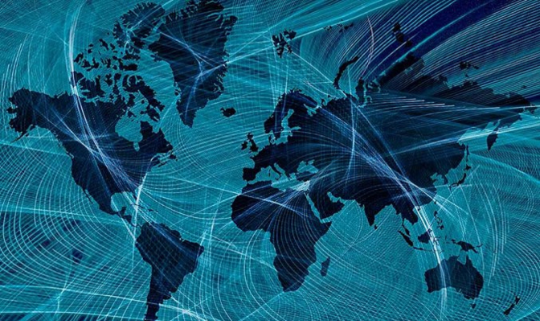How the World Political Domain Accelerates Globalisation
Mahtab Uddin Chowdhury | 17 April 2021
Although the term ‘industrialisation’ is not a product of the 20th century, it fully came into effect during that time. With time, ‘globalisation’ replaced the word industrialisation, and the world political system started to change dramatically. The continuous transformation of world political patterns has been increasingly influencing world trade affairs. With the vision of establishing peace and security, the end of the second world war gave birth to the largest global institution, the United Nations. Still, the wars in Korea, Vietnam, China, Cuba, and Iran occurred during that period and divided the world multiple times. The present century is also facing catastrophic scenarios. These phenomena result from a conflict of interest, dividing the global political structure, which was perhaps definite but not static. This article aims to demonstrate a correlation between political split-out and factors of the globalisation process.
Globalisation is about building relations among countries through goods trade and the exchange of work force and culture. It means the transformation of the world system from the national boundaries to international territories. Faster communication, access to transportation, and human migration have been contributing to the progression of globalisation. Nowadays, the global market has become a hotter topic than the local market. The issue of security is handled through a comprehensive plan of action by different countries. Multi-national companies are operating globally, establishing regional offices in different countries and selling products worldwide. The central banks of different countries have shared regulations with international institutions like World Bank, International Monetary Fund (IMF), and New Development Bank (NDB). Therefore, states become bound to follow the regulatory policy of such institutions.
The emergence of such a scenario wouldn’t be possible if there were no common understating of political ideology. States are forming their foreign policy by ensuring it wouldn’t hamper the continuation of trade between countries. Political indifferences and past historical records are rarely considered when opening up the border for the exchange of products. For instance, despite being attacked by nuclear bombs, Japan has become the fourth-largest trade partner of the USA. Around 40 years of the cold war couldn’t prevent the USA and Russia from maintaining a substantial financial relationship over the years. China wouldn’t have dreamt of initiating their multi-billion project One Belt One Road if countries were resistant to opening their boundaries. However, imposing sanctions or cutting down diplomatic relations between countries is often seen in the political race. Countries like North Korea, Iran, or Russia have faced such obstacles that hampered them economically. On the other hand, there were other countries who helped them tackle such a crisis by increasing the flow of products between them. For instance, after being penalised by some Arab countries, Qatar agreed to buy weapons from the USA worth 12 billion US dollars. This is a trick that is played by many countries to keep themselves in the global race.
The realities of today’s global economy are the result of cooperation through the reformation of state policies. There have been attempts to divide the world economic system into capitalism and socialism. The demand of time and the domination and effectiveness of capitalism couldn’t be overlooked or replaced. Perhaps, socialist Russia and capitalist China realised that it would not be possible to survive in this era of globalisation with only a state-centred economy. Despite the internal challenges, European Union (EU) countries are trying their best to regulate their markets beyond national borders. The vast ideological indifferences between the EU countries and Russia couldn’t restrict them from trading billions of euros worth of goods every year. Eventually, the remunerative market system becomes the priority for everyone regardless of other distinctness.
Further globalisation seems unavoidable, and closing down national borders is not a good choice to make. There might be more violence, conflicts, records of sanctions, and pause of diplomatic relations, but that can’t slow down the pace of globalisation. Therefore, having knowledge of world politics is necessary for understanding the cycle of globalisation.
Mahtab Uddin Chowdhury, Research Assistant, Centre for Governance Studies (CGS)
Views in this article are author’s own and do not necessarily reflect CGS policy.
